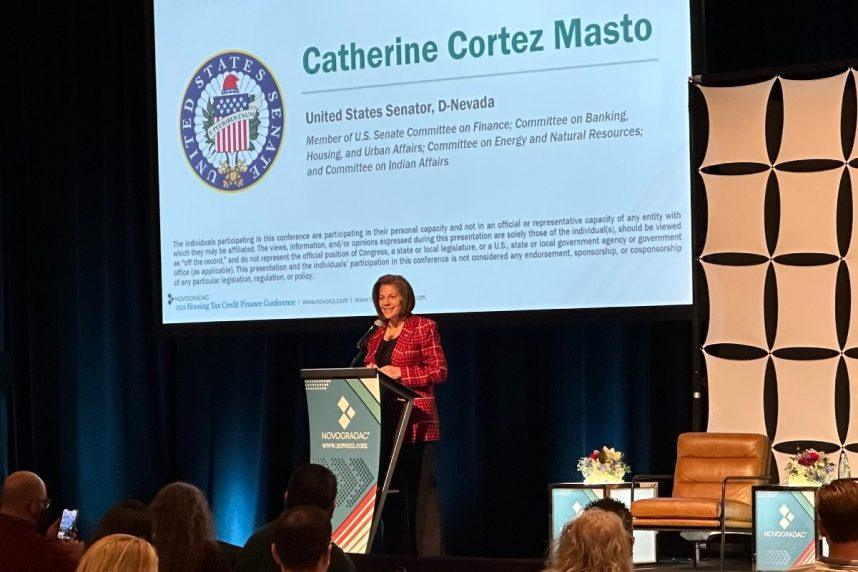WAGER Act to Repeal Federal Excise Handle Tax and Employee Head Fee Reintroduced
Posted on: September 13, 2025, 11:10h.
Last updated on: September 13, 2025, 11:10h.
- The WAGER Act would lift the federal government excise tax on sports bets
- Nevada Sen. Catherine Cortez Masto is sponsoring the bill
- Legal sportsbooks pay a 0.25% excise tax on each bet they take
United States Senators Catherine Cortez Masto (D-NV) and Cindy Hyde-Smith (R-MS) have refiled legislation that seeks to repeal the federal government’s excise tax on sports bets and the per-employee fee legal sportsbooks must pay annually.

The Withdrawing Arduous Gaming Excise Rates Act, or WAGER Act, would exempt legal, regulated retail and online sportsbooks from an IRS regulation dating back to 1951 that requires them to pay a 0.25% handle tax on every bet they take. The congressional bill would also lift the $50 annual “head” tax sportsbooks pay to the federal government on each employee in the sports gambling business.
In Nevada, legal sports betting is a thriving industry that adds to the world-class experience of watching our championship-level professional sports teams,” said Cortez Masto. “It’s past time to exempt legal sports betting from outdated taxes that are actually incentivizing illegal sportsbooks.”
“Mississippi’s casinos and resorts play a key role in tourism, jobs, and community investment along our Gulf Coast. For too long, this outdated federal tax on sports betting has held this industry back, all while giving illegal offshore operators, and now new out-of-state run prediction markets, an unfair edge against our more traditional casinos in Mississippi and elsewhere,” added Hyde-Smith.
Outdated Regulation
Congress amended the Internal Revenue Code in 1951 with an excise tax and per-employee head fee on legal sports betting, businesses that at the time were confined to Nevada.
The tax was designed to raise money for federal law enforcement to go after illegal bookies operating across the country. Many of the underground gambling outfits were supposedly tied to mobs and other criminal syndicates.
Seventy-four years later, and seven years removed from the US Supreme Court striking down the federal law that had kept legal single-game sports betting to Nevada, Cortez Masto and Hyde-Smith say the sports betting IRS regulations are outdated. The very illegal sports betting operations the tax rules were designed to eliminate are now said to be supporting them, as the excise tax and employee head fees are overhead that don’t apply to offshore online sportsbooks, illegal neighborhood bookies, or prediction wagering exchanges.
Lower overhead allows illegal bookmaking operations to offer slightly better odds and more promotions and incentives, supporters of lifting the excise and head taxes claim.
Fees Mount
On a $100 bet, a book like DraftKings must set aside 25 cents for the federal government. That might seem trivial, but considering that legal sports bets in New York alone totaled $22.6 billion last year, the 0.25% tax quickly mounts.
The American Gaming Association said legal sports bets totaled $147.9 billion in 2024. That equates to about $369.75 million in federal sports betting handle excise tax fees across the 38 states and Washington, D.C., where sports gambling is regulated.
US Rep. Dina Titus (D-NV), who in February introduced her own federal legislation to repeal the 0.25% sports betting handle excise tax, said she “once asked IRS officials where the revenue from the handle tax went in the federal budget, and they didn’t know.”
The US Treasury says the money is deposited into its general fund.
No comments yet